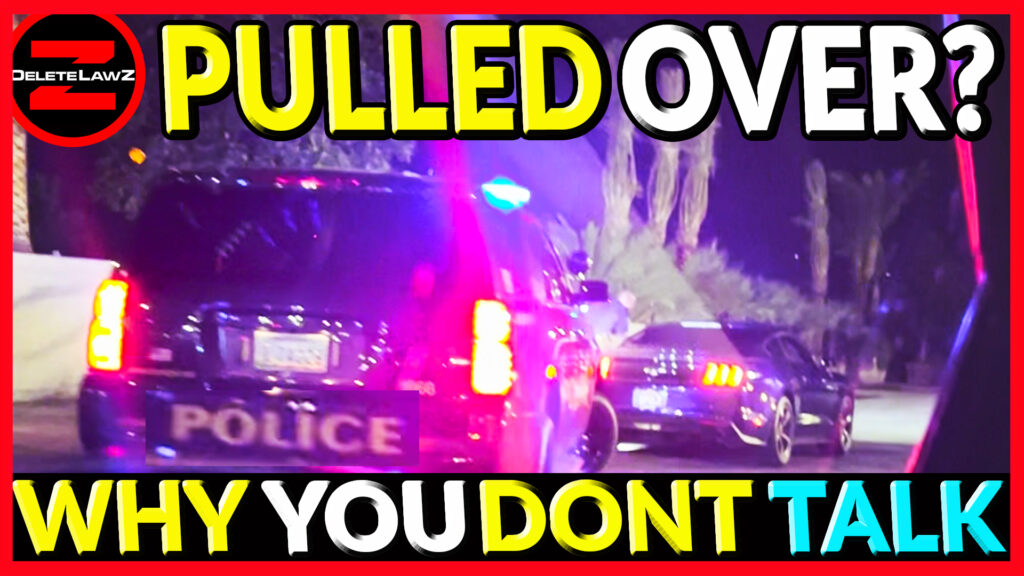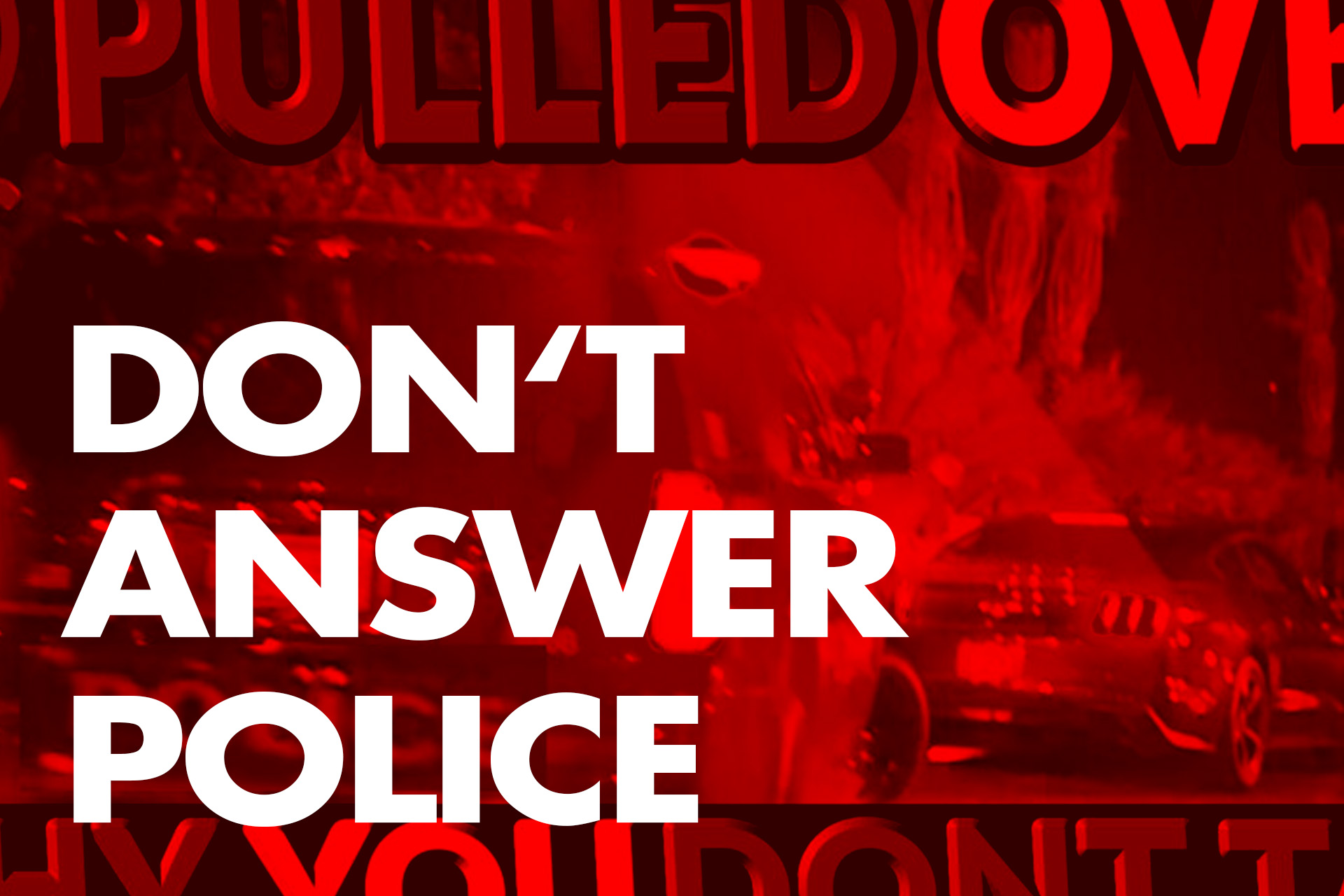Why you don’t answer police questions

Getting pulled over by the police, can be stressful and intimidating experience, especially if you’re not sure how to handle the situation. One of the most important things to remember is that you have the right to remain silent and to speak with a lawyer. Unfortunately, many people make the mistake of answering questions from the police, which can sometimes lead to unintended consequences.
One potential pitfall of talking to the police when pulled over is that answering one question can lead to more questions. For example, if a police officer asked, “do you know why I pulled you over?“ And you answered, “I was going a little too fast,“ the officer may follow up with more questions, such as “where are you going?“ Or “have you been drinking tonight? “ If you answer these questions, it may give the police officer more reason to suspect you of a crime.
Furthermore, if you answer one question, the police may expect you to answer all of their questions. If you refuse to answer the next question, they may accuse you of not cooperating or even obstructing justice. This can put you in a difficult situation, and make it harder to assert your rights later on.
It’s important to remember that you are not obligated to answer any questions that could incriminate you or waive your rights. You can politely assert your right to remain silent and request to speak with the lawyer. If the police continue to pressure you or make accusations, it’s best to remain calm and avoid escalating the situation. You have the right to protect yourself and assert your legal rights.
The reality is that anything you say to the police can and will be used against you in court. Even if you think you’re innocent, answering questions can still give the police ammunition to use against you. For example, if the police ask if they can search your car and you say yes, they may find something incriminating, even if you didn’t realize it was there. Like a yogurt stain on your consul, they can believe it’s methamphetamines, we have seen this on video.
In addition to the potential legal consequences, there are other reasons to avoid talking to the police when pulled over. For one, you may inadvertently say something that could make the situation worse. Additionally, talking to the police, can be emotionally, taxing, and even traumatizing, especially if you’ve had negative experiences with police in the past.
When you are pulled over by the police, it’s critical to remember your right to remain silent and speak with a lawyer. Answering one question will lead to more questions, which will put you in a difficult situation, and make it much harder for you to assert your rights later. By remaining silent and asserting your rights to speak with a lawyer, you can protect yourself, and ensure that your words are not used against you in court. Remember, the burden of proof is on the prosecution, and you have the right to make them prove their case.
In Liberty,
DeleteLawz

